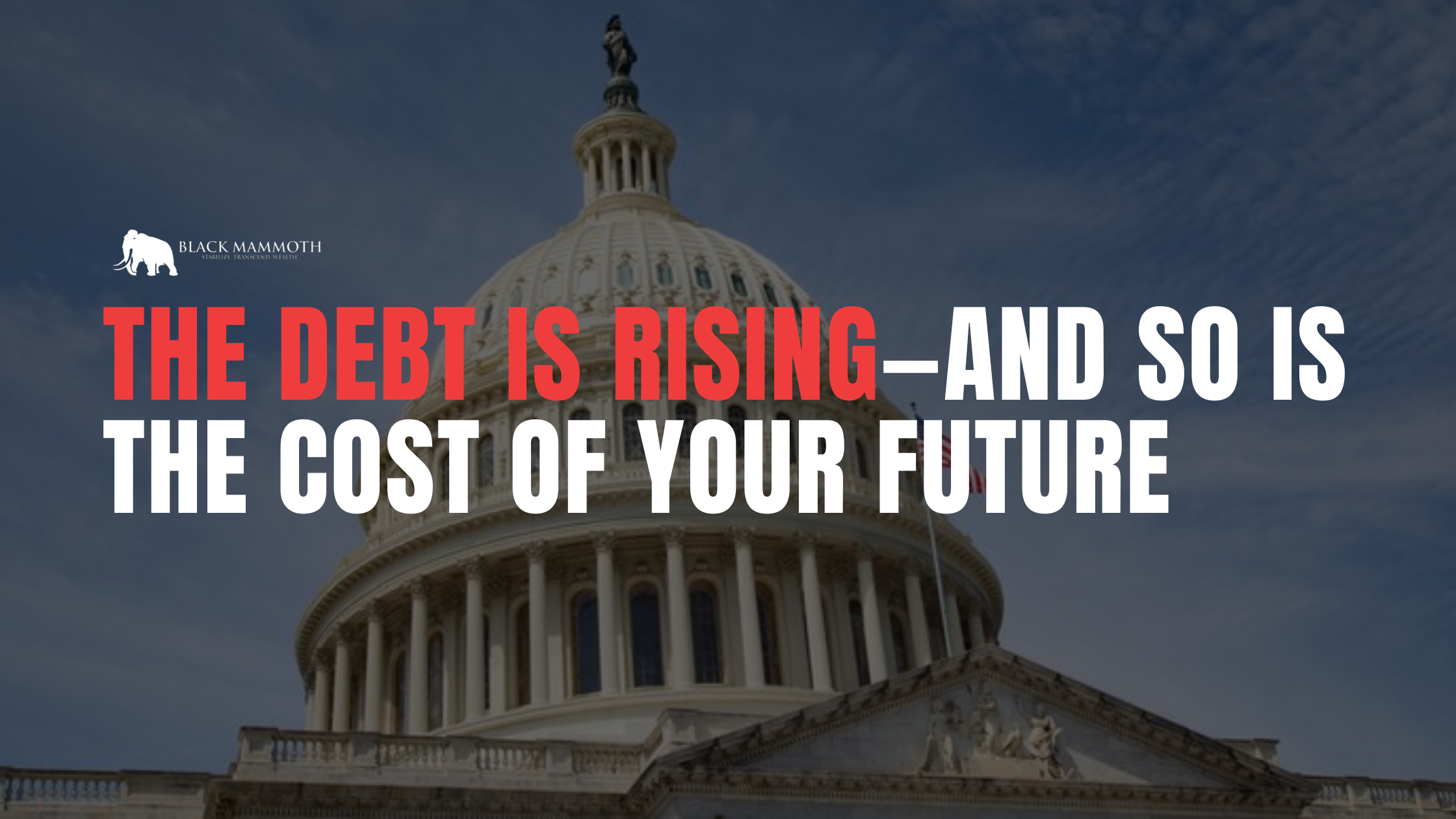The Debt Is Rising—And So Is the Cost of Your Future
Let’s get something straight: national debt isn’t just a political buzzword. It’s a pipeline. And when that pipeline backs up, guess who gets hit first? Not the rich. Not the corporations. Us.
With the One Big Beautiful Bill Act, the U.S. just added somewhere between $3.3 and $3.8 trillion to the national deficit.
And before you zone out—let me break down why that number matters to your life, your bills, and your ability to build wealth in this country.
WHAT’S CHANGING?
This new tax bill gives huge cuts to the top earners and corporations—without paying for them. That creates a multi-trillion dollar hole in the federal budget.
To cover it, one of two things has to happen:
Future spending cuts (think: public schools, healthcare, housing)
Or higher interest rates (on credit cards, business loans, car notes, and mortgages)
Neither of those outcomes hit the elite. They hit the working class, the side-hustlers, the dreamers, and the folks trying to stay afloat.
WHO FEELS THE SQUEEZE?
Communities of color that rely more heavily on public infrastructure—like public education, subsidized healthcare, or affordable housing.
Entrepreneurs and gig workers who already face high borrowing costs and limited access to traditional financing.
Anyone rebuilding credit without family wealth or cosigners to fall back on.
Young adults and first-gen homeowners trying to break into the housing market.
Translation: the people already carrying the weight of financial inequality are about to carry even more.
HOW THIS SHOWS UP IN REAL LIFE
Mortgage rates inch higher, meaning that dream of buying a home gets pushed further out
Student loan interest rises, burying folks trying to get ahead through education
Small business loans become less accessible, killing dreams before they launch
Rent goes up, because landlords pass along borrowing costs to tenants
And don’t forget: when government programs get slashed to "balance the budget," it’s not tax shelters and trust funds on the chopping block—it’s food assistance, job training, healthcare, and school funding.
WHAT YOU CAN DO RIGHT NOW
You can’t stop the national debt, but you can position yourself to move smarter through the squeeze. Here’s how:
1. Lock In Fixed Rates Now
If you’re buying a car, home, or taking a loan—go fixed over variable.
Refinance now if rates are favorable. Don’t wait for the spike.
2. Build an Emergency Fund Like It’s a Shield
If the squeeze hits your rent, your job, or your loan payments, savings = survival.
Aim for at least 1 month of expenses to start. Build up over time.
3. Pay Down High-Interest Debt First
Credit cards will be the first to rise. Knock down balances now before the rate hikes hit your pocket.
4. Revisit Your Budget—Hard
Cut fluff. Prioritize necessities. Start running your money like a business.
5. Use Your Vote and Your Voice
Advocate for community investment, not cuts.
Support local leaders who understand financial policy impacts the hood, not just Wall Street.
FINAL WORDS
Trillion-dollar deficits don’t float in the air. They land—on budgets, on policies, and on people.
They don’t tax generational wealth to fix it. They cut from public wealth. Our wealth. Shared systems. Programs that stabilize families.
So while the media talks about "economic growth," we need to prepare for economic pressure.
Prepare, protect, and plan like your future depends on it—because it does.
This Ain’t Just Policy—It’s Your Pocketbook.
Join us for a Black Mammoth Power Hour dedicated to future-proofing your finances in a high-debt, high-rate economy. We’re breaking down exactly how to position yourself when public programs shrink and the cost of money goes up.
Learn how to refinance and restructure debt before rates rise
Build a recession-ready budget without cutting your ambition
Protect your family from future benefit cuts with smart planning
Get your questions answered live by trusted financial pros
This ain’t fear—it’s foresight. Get ahead of the squeeze before it hits.
Let’s build.

